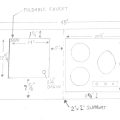Hey! This site is reader-supported and we earn commissions if you purchase products from retailers after clicking on a link from our site.
RV life isn’t about roughing it. It can be about living simply and spending time in nature, yes. But it absolutely doesn’t mean that you must be uncomfortable or give up every luxury of home life. Nowhere is this more apparent than in your RV shower.
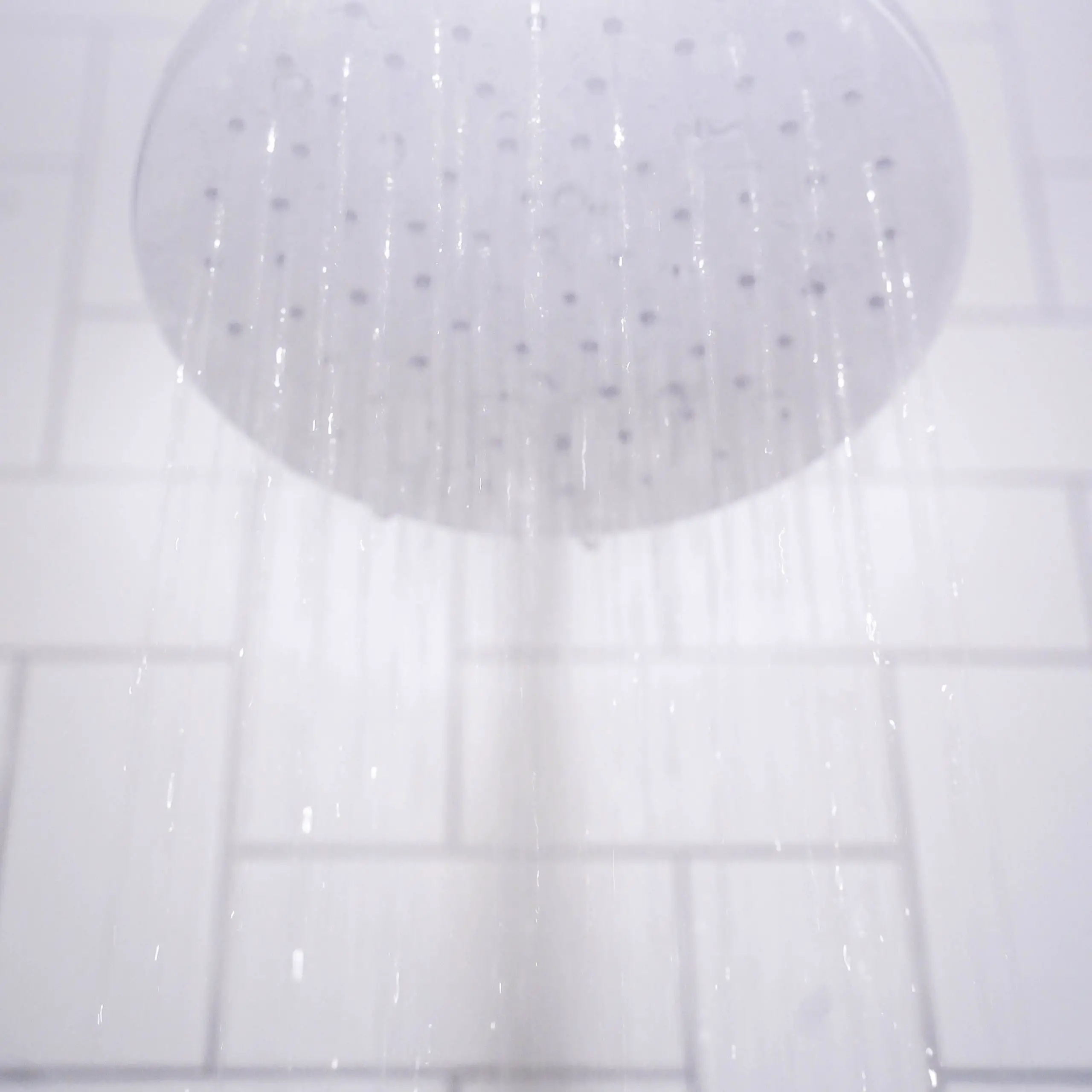
Hot water is an underappreciated daily luxury that many of us take for granted. But one long trip in a camper with no RV water heater will convert you into a true believer. Thankfully, there are plenty of hot water heaters for RVs on the market, and finding the best camper water heater isn’t a hard task. There are designs suitable for every application, from tent camping to luxury Class A motor coaches.
| Image | Title | Price | Prime | Buy |
|---|---|---|---|---|
 | RV Tankless Water Heater, Fogatti 2.9 GPM, 55000 BTU Hot Water Heater with 15 x 15 Inches White Door | PrimeEligible | Buy Now | |
 | RecPro RV Tankless Water Heater | On Demand Hot Water Heater | Gas Water Heater | Remote Control Included (Black) | PrimeEligible | Buy Now | |
 | SUBURBAN MFG 5243ASW10DE 10-G Direct Spark,ELEC ELMNT | PrimeEligible | Buy Now | |
 | DOMETIC 94002SP WH-GEA RV Gas/Electric Water Heater - 6 Gallon , Silver | Prime | Buy Now | |
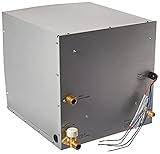 | GIRARD 2GWHAM Tankless Water Heater | PrimeEligible | Buy Now | |
 | Bosch Electric Mini-Tank Water Heater Tronic 3000 T 4-Gallon (ES4) - Eliminate Time for Hot Water - Shelf, Wall or Floor Mounted | PrimeEligible | Buy Now | |
 | Camplux ME25 Mini Tank Electric Water Heater 2.5-Gallon with Cord Plug,1.5kW at 120 Volts | PrimeEligible | Buy Now | |
 | Ecosmart POU 3.5 Point of Use Electric Tankless Water Heater, 3.5KW@120-Volt, 6 x 11 x 3 Inch | PrimeEligible | Buy Now | |
 | Camco Hot Water Hybrid Heat Kit - Easily Converts Any 6-Gallon RV LP Gas Water Heater to 120V Electricity to Conserve Propane (11673) | PrimeEligible | Buy Now | |
 | Eccotemp L5 1.5 GPM Portable Outdoor Tankless Water Heater | Prime | Buy Now | |
 | Camplux 5L Outdoor Portable Water Heater, 1.32 GPM Tankless Propane Gas Water Heater for RV, Camping, Barns, White | PrimeEligible | Buy Now | |
 | Fogatti Portable Water Heater 1.85GPM 42,000 BTU Tankless Water Heater Propane Water Heaters for Dog Shower, Outdoor, Camping, Trip, RVs, Cabins, Easy to Carry and Install, with Portable Handle | PrimeEligible | Buy Now | |
 | Eccotemp 45H-LP 6.8 GPM Outdoor Propane Tankless Water Heater, White | PrimeEligible | Buy Now |
Types of RV Water Heater
Firstly, water heaters are built for specific installations. That is to say, a home water heater won’t work in an RV, and a marine water heater won’t work in an RV. The water heater you put in your RV is more or less a specific thing. There are a few instances where camping or outdoor water heaters will work, but these are limited.
For use in a camper, the best RV hot water heater will be either:
- Designed for in-wall use
- Small and designed to fit under a sink
- Designed for outdoor-only use
In-Wall RV Water Heaters
Many RVs come with a water heater, which may need to be upgraded or replaced. The most powerful fuel available for most RVers is propane, while electricity is convenient if you are plugged in at a campground. As such, most RV hot water heater designs use both propane and electricity.
These units are made to fit in a special cutout on the RV’s exterior. That way, it can vent dangerous exhaust gasses from the burning propane outside.
In-wall units come in both traditional tanked and new tankless water heaters or “on-demand” styles.
Replacing this style of the water heater should be as easy as making sure the new one is the same size and then plugging it into the electric, gas, and water plumbing systems.
Small Under-Cabinet Water Heaters
Under-cabinet hot water heaters are always electric models since they require no venting or propane hookups. That’s convenient because it means they only need a power connection.
But when installing an electric water heater, it’s vitally important to understand exactly what your electric load will be and if your RV’s power system is up to the task or not.
Camping Models
A few models of hot water heaters could be called stand-alone units. They plug into a propane tank with an included regulator, and they have water inlets and outlet ports. They’re designed in enclosed boxes with no venting system, so they need to be hung outside. Otherwise, the exhaust gases from the burning of propane could be hazardous.
These models can be used alone with a showerhead, or they could be plumbed into your RV’s fresh water system. They generally have lower flow rates when compared to purpose-built RV systems, but then again, they are considerably cheaper.
The biggest issue with these units is finding a place to mount them. If you have the propane system hookup and an exterior place where it could hang, you may be able to use one of these for off-the-grid camping. But using it will involve setting it up and making connections every time you set up camp.
If you don’t want to set it up each time, you’ll have to find a place to mount it on the outside of your camper permanently. Either way, it can provide enough hot water for showers and dishes and is way better than cold “Navy showers.”
Best RV Water Heater – Tank Heaters vs Tankless
You’ll find two main types of water heaters on the market today–ones with tanks and ones without. Tankless, also called on-demand or instant water heaters, are a newer design and a great upgrade for some campers.
Traditional Tank Water Heaters
Most RV water heaters work just like the water heaters in your home. A heating element, be it gas or electric, heats a tank of water and keeps it hot. As the water cools, either because it’s used and replaced with cold water or due to inefficiencies in the tank, the heating element cycles on and off to keep the tank hot. The power of gas units are measured in British Thermal Units (BTU), while electric water heaters are measured in watts.
This type of heater uses a lot of fuel (gas or electricity) to keep the water hot even when you aren’t using it. Therefore, a tankless water heater is a better choice if you’re in an off-the-grid situation where efficiency is key.
What is a Gas RV Water Heater?
Electric-only water heaters can be installed in your RV easier since they do not require venting as there is no gas combustion. The units you find for RV use will be much smaller than those for your home–usually with tanks ranging from one to ten gallons.
If you’re replacing an existing in-wall RV unit and only want AC electrical power, it probably makes the most sense to purchase and install the gas/electric model and then not use the propane. Most of the time, the water heater will function just fine with 120V AC electricity when it isn’t even attached to the propane connections.
You can opt for an under-sink tank water heater if you’re retrofitting a water heater into your own conversion. These are small units designed to provide hot water to a single water outlet. They are usually designed to be powered by a single 20-amp wall outlet, so they can work with most RV electrical systems if you are careful.
Tank Water Heater Advantages
- Can be powered by gas, electricity, or both
- Already installed on most RVs
- In Class A RVs , Class B RVs, or Class C motorhomes, engine coolant can be used with a heat exchanger water heater to make hot water while driving (sometimes called “motor aid”)
Disadvantages of Tank Water Heaters
- Takes a while to heat the water when cold–usually about 30 minutes
- Once the hot water in the tank is used, the unit takes a while to make more (In other words, the last one to shower might not have much hot water left to use!)
- Most RV units have a small storage tank, between five and ten gallons
- Electric water heaters require a lot of power–more than most off-the-grid systems can provide without running a generator
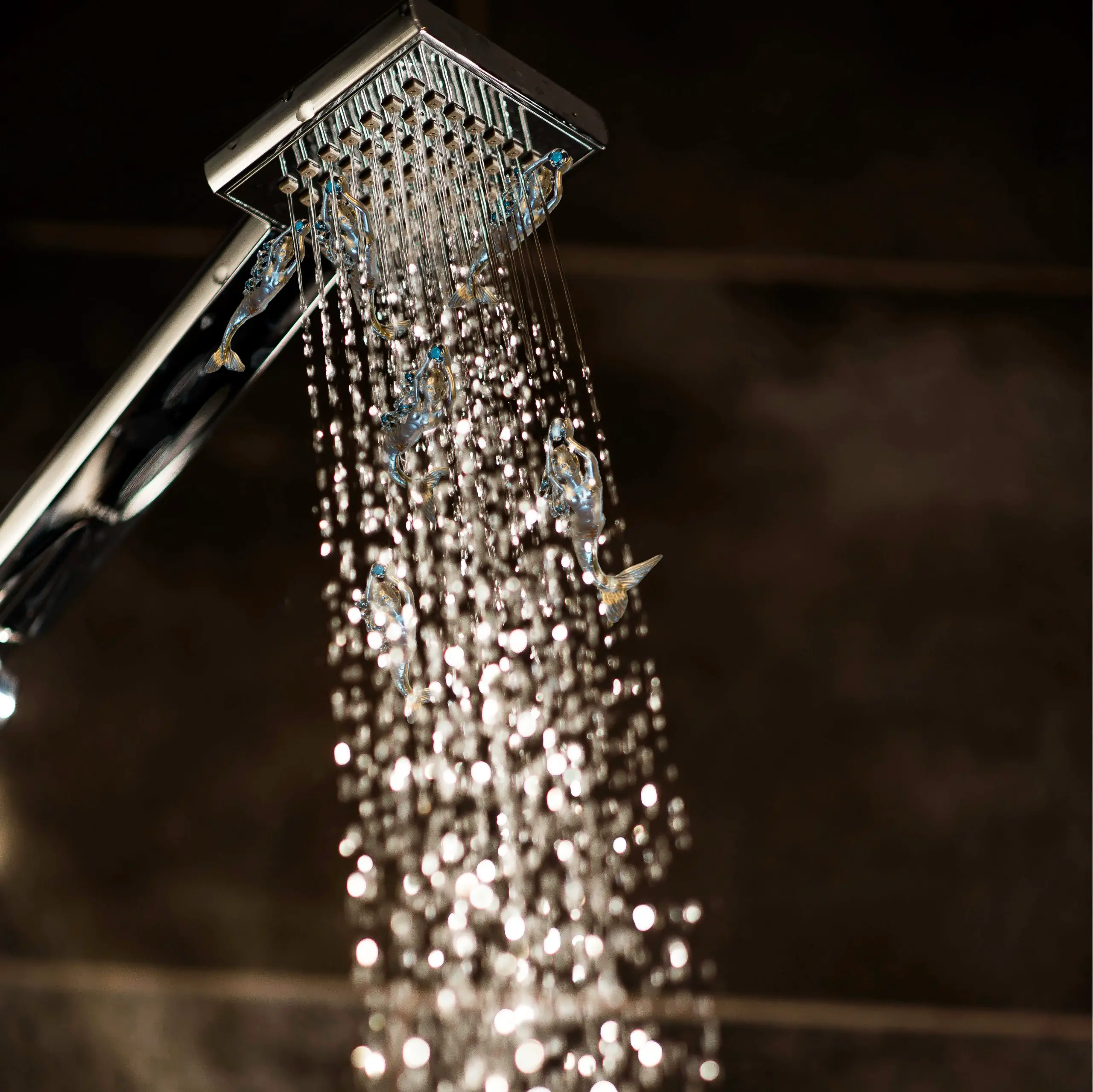
On-Demand Tankless Systems
The idea behind an on-demand system is that hot water is created at the point of use (sometimes called POU). In a house, you’d have several of these water heaters installed in various bathrooms and one in the kitchen so that every hot water outlet had its own. In an RV, you can make one unit work since there is seldom a need to be running multiple water taps at once.
What Is an RV Tankless Water Heater?
Tankless heaters are sometimes called on-demand systems. This is because the water is heated as it flows through the unit. So if you aren’t using hot water, the heating element is not active. Once the water starts flowing, the heater kicks on and heats it instantly.
It’s important to realize that these units require a huge amount of power to heat the water quickly. The amount of flow, measured in gallons per minute, lets you know how much water can move through the system. Even though they are far more efficient than tank water heaters, they require so much more power that you must be careful to remain within the confines of your electrical and propane systems.
Tankless Water Heater Advantages
- Endless hot water is available–at least until there’s no water left in your water system or no propane left in the gas system!
- Instant hot water–no recovery time
- More energy efficient
- Smaller (since they have no tank), so they can fit in smaller spaces in your RV
- Available in permanently installed versions or portable camping setups
- Propane units are an excellent off-the-grid solution
- Lighter than tank water heaters
Disadvantages of RV Tankless Water Heaters
- Electric units require more power than most RV systems can provide
- Gas units require proper venting
- Not available in dual-fuel versions
- If water is very cold or water pressure very high, it may not produce the desired temperatures (slow down the flow of water with a regulator to get it warmer)
- Some units will not function if the water pressure (PSI) isn’t high enough–you might need a more powerful 12-volt pump
- No option for motor aid water heater setup
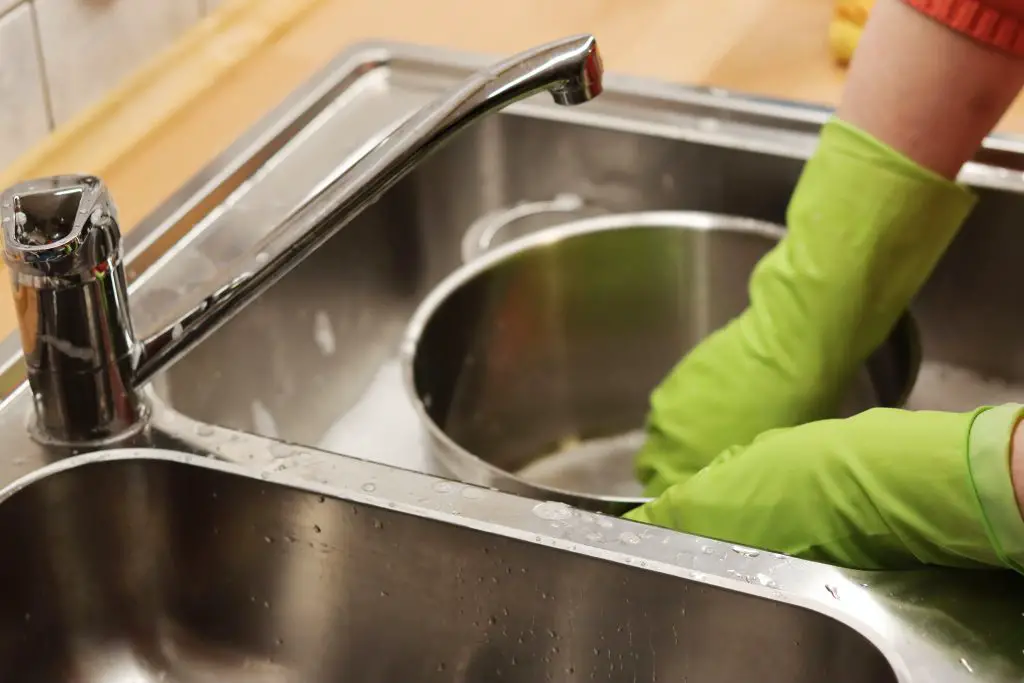
What to Look For in a Water Heater
Unlike your home, an RV’s water system is completely self-contained and designed to supply only your trailer’s needs. Therefore, the size and capacity of every component are dependent on how many water faucets you have and how likely it is that you will use more than one at a time. Plus, the size of an RV’s tank is limited. So unless you’re plugged into a campground connection, you only have so much water on board anyway.
All of these considerations go into planning your RV heater installation.
Best RV Water Heater Brands
Suburban
If you already have a water heater installed by the factory in your RV, chances are Suburban made it. The company makes both tank water heaters and continuous water heaters. Their tank sizes range from 4 to 16 gallons. The tankless model has a 60,000 BTU heating element.
Girard
Girard makes tankless water heaters for RV use. These propane gas-powered units have 42,000 BTUs of power and fit in the standard 13 by 13-inch in-wall cutouts found on most campers and motorhomes.
Atwood/Dometic
Atwood makes six and ten-gallon water heater models that have traditional tank designs. Their models are available with pilot lights, electric ignition, or direct spark ignition (DSI). Six-gallon Atwood heaters fit 16 by 12.5-inch cutouts, while the ten-gallon units need a hole that is 16 by 15.5 inches.
RV Hot Water Heater Key Features
Portable or Full System
Your style of camping will dictate what sort of water heater you want.
If you roll into the campground and plug in your RV to the hookup, you bring the comforts of home wherever you go. A full system is a right choice for you. Your RV should be able to heat as much water as you’ll use, and that will depend on the water pressure at the intake and also how many faucets you’ll use at once.
But for RV owners with limited tankage and no hook-up for water, is a built-in full system worth it? Many folks are using truck campers, pop-ups, or teardrops and still want some hot water to wash off the day’s adventures before bed. For these folks, a portable system might be just the ticket. These are stand-alone systems that plug into your propane tank and water supply. Most of them are a little larger than a shoebox and have their own shower nozzle.
The main disadvantage of this system is that it must be broken down and packed away when not in use. So you’ll want to work out someplace to hang it where it’s easy to hook up and convenient to use.
Cutout Size and Space Constraints
As you might expect, the first thing you need to worry about when picking an RV water heater is where you will put it?
Most campers have a built-in in-wall water heater. This allows for external venting, a must-have item for propane-burning heaters. The water heater will fit inside a cutout built into the side of the camper, and there will be an external door that provides the vent and access to the unit.
If this describes your water heater, then the first thing you need to know is how big of a cutout your RV has. Next, you’ll want to look at the heater you’ve got and find a close replacement. This doesn’t mean you have to buy the exact same heater again; it just means that everything will be simple so long as the new heater fits in the same hole and uses the same hookups for gas and electricity.
If your camper doesn’t have this sort of water heater, it likely has one that fits in a cabinet or in an accessory compartment. These should offer you a little more flexibility in terms of size and placement.
But what if your RV doesn’t have a water heater at all? If you’re doing a fresh install, you’ll have to come up with these answers independently. A portable camping water heater might be the easiest, but it is also the most limited in function. A fully integrated solution is best if you have a kitchen and shower on board. The choice is up to you, but you’ll have to work out the dimensions and plumbing considerations on your own.
Ignition
There are a few ways to light the burner in a propane water heater. The “old-fashioned” way–although still widely used–is the pilot light. A pilot light is a small flame that is left on all the time. The heater then cycles on and off, and the pilot light ignites the burner when the gas supply is cycled on.
But the pilot light needs to be lit somehow. In a manual functioning model, you might have to go outside and relight it with a lighter should it blow out. Electric ignition models have their own lighter built-in so that the pilot light will relight itself.
DSI, or Direct Spark Ignition, is an electronically controlled system that lights the burner more like a barbeque grill. The spark only goes off when the burner needs to light so that you can do it remotely. Although some less expensive models may still use pilot lights, this is the favored system found on modern tankless water heaters.
No matter what style of water heater you have, make sure you understand the fail-safe system. No heater should continue pumping out propane if the flame blows out. Propane is extremely flammable and should always be used with caution. Keep the heater in tip-top condition to avoid any problems.
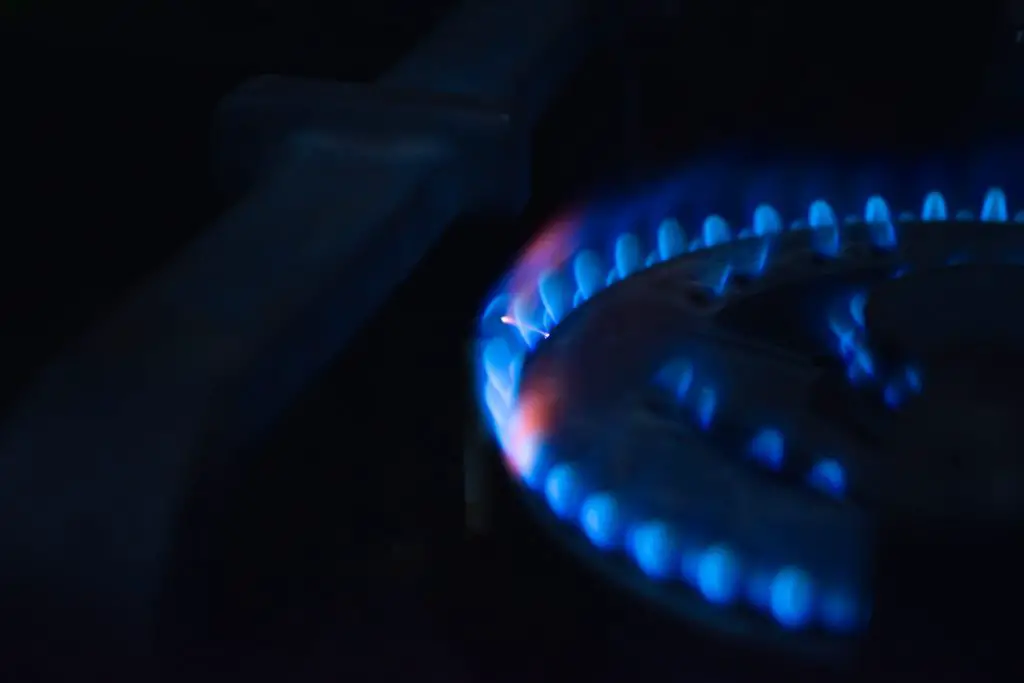
Type of Power
Electric water heaters use electricity to produce hot water. But not all electricity is the same, so you need to make certain that you’re buying a water heater that can work in a mobile install. RVs are much more limited power-wise than a home is.
That is one reason that gas water heaters are so popular. Of course, these will need a gas hookup, but they’ll need power, too. This is to run the electronics and the controller and create the spark for ignition. Since propane is a popular off-the-grid fuel, most water heaters require a 12-volt power converter for these functions. You can start and run the heater off of the battery bank. Small, portable camping gas water heaters may use a replaceable battery.
A dual-fuel heater, like a gas/electric unit, might have three hookups–120-volt AC electric, propane gas, and 12-volt DC electric.
When shopping for a home water heater that you want to use in an RV, it’s critical that you keep your RV’s power systems in mind. For example, most of the tankless water heaters built for home-use use 240-volt power. This is available in homes but not possible in RV installations. Therefore, your camper will always be limited to the amount of power that comes through your hook-up or is made by your generator.
Capacity
The usable capacity of a water heater depends on what type of water heater you are looking at.
If you’re shopping for a traditional water heater with a tank, then the capacity is usually measured in the size of the tank. Once you’ve used up the water in the tank, you’re effectively out of hot water until it heats some more. The length of time it takes to heat more water is known as the recovery time.
Tankless on-demand water heaters are different, however. Since their goal is to produce unlimited hot water, their capacity is measured in the maximum flow of water that can pass through before the water isn’t getting heated enough. This flow is measured in GPM, or gallons per minute.
In most RVs, it’s actually pretty easy to get an idea of how many GPM your system does. Look at your 12-volt water pump–what is its output? Generally, you’ll find them in the 2.0 to 4.0 GPM range.
Finally, tankless units are also rated based on temperature. Their burners are only so powerful and can only put so many BTUs into the water. If the water is freezing cold, then it can’t get the water as hot as you need it.
Tank Size
When shopping for a traditional water heater, one of the biggest differentiating factors is the size of its water tank. RV water heaters have tanks ranging from one to ten gallons.
A bigger tank means more hot water available for showers, dishes, or whatever. But it also requires a longer time and more power to heat the water.
Mixing Valves to Extend Capacity
Many small water heaters used in campers have a mixing valve that extends their usable capacity. Basically, it heats the water to a higher temperature than a standard water heater would. Then, instead of pumping this super-heated water straight to the tap, it mixes it with a little cold to cool it down. That means less hot water comes out of the tank, so one hot water tank lasts a little longer.
Energy Consumption
The energy consumption of your water heater might be a much greater concern than you imagine. Normally, when we think about energy conservation, we endeavor to buy more efficient appliances to reduce our energy costs and use.
But in an RV, you have many more constraints than you do in your home. Energy consumption isn’t merely a “nice-to-know” specification of the appliance. You need to sit down and work out how much energy your electrical circuit can provide. Is it enough for this water heater, and if the water heater is on, will it be enough to run anything else at the same time?
The shore power connection to your RV can only provide so much power. It’s generally measured in amps, and the type of cord you have dictates how much power the circuit can supply. Common sizes are 30, 50, or 100 amp cords. Circuit breakers on the power box and inside your camper should limit the cord to its rated amperage.
Using more power than it’s rated for should result in a popped breaker for the sake of safety. Overloading a circuit is a good way to start an electrical fire.
When you look at your power panel, it should give you an idea of what runs off that power input. Air conditioning, wall outlets, and battery chargers are common items found on the 120-volt circuit. If you total all loads up, it’s not hard to exceed the typical 30-amp circuit.
For example, your air conditioner might draw 12 amps, and the water heater draws about eight amps. That only leaves ten amps to spare, so you might pop the breaker if you turn on a toaster, coffee pot, or hairdryer!
Cleaning, Maintenance, and Winterization Procedures
As worry-free as they usually are, even water heaters need a little love sometimes. Spring cleaning of tubes and vents is always a good idea. Bugs love to build little nests in the lines and clog up the works.
It also is best if you occasionally cleaned the tank’s interior to remove any hard water buildup. Calcification is common in water heaters, especially since you’ll often be hooked up to well water and other questionable sources.
- Cleans sediment out of RV hot water heater
Prices pulled from the Amazon Product Advertising API on:
Product prices and availability are accurate as of the date/time indicated and are subject to change. Any price and availability information displayed on [relevant Amazon Site(s), as applicable] at the time of purchase will apply to the purchase of this product.
How easy this task is depends on the design of the heater. Most will have a drain of some kind and likely a place where you can plug in a hose for a powerful flush.
Many heater tanks also have an anode. An anode rod is a sacrificial piece of metal that deteriorates rapidly. It’s designed to do exactly that because it will protect the rest of the heater so long as it is in good shape. Once the anode dissolves, however, other things will start breaking down instead. So be sure to replace your anode regularly–probably every year. Again, check your owner’s manual for specifics and part numbers.
Winter is also an important consideration for water heaters. Ideally, your water heater will be easy to drain from the outside of the camper. If freezing weather is expected, or you are storing the rig for a long time, just drain all the water out of the system. Visit our RV water heater troubleshooting guide!
Another option is to run RV antifreeze through the system instead. There is a particular kind of antifreeze–propylene glycol or “pink stuff”–that is non-toxic and safe for potable water systems. Or seek an RV winterization kit!
Best RV Water Heaters
In-Wall Hot Water Heaters for RVs
Fogatti RV Tankless Water Heater 2.9 GPM 55,000 BTU
This unit is designed for motorhomes and RVs with a 13 by 13-inch cutout for their water heater. The door measures 15 by 15 inches and is available in black or white. It provides up to 2.9 gallons per minute. If you don’t need quite that much capacity, a smaller 42,000 BTU, 2.2 GPM capacity unit is also available from Fogatti.
This is a propane-powered instant water heater built explicitly for RV use. You can set its regulating burner to provide stable water temperatures ranging from 95 to 123 degrees Fahrenheit. It also has all the right safety features, including antifreeze, overheat, over-voltage, and flameout protection.
The Fogatti comes with a 60-day free replacement period and a five-year repair service agreement. The heat exchanger is only covered for two years, however.
- The cutout size of water heater is 13 x 13 inches, with door size 15 x 15 inches. Higher heating capacity 55000 BTU and max flow up to 2.9 GPM.
Prices pulled from the Amazon Product Advertising API on:
Product prices and availability are accurate as of the date/time indicated and are subject to change. Any price and availability information displayed on [relevant Amazon Site(s), as applicable] at the time of purchase will apply to the purchase of this product.
RecPro RP-1057 RV Tankless On Demand Water Heater
RecPro is a microcomputer-powered tankless water heater built by Fogatti. It fits in a standard 13 by 13-inch cutout with a standard 15 by 15-inch door.
Everything onboard this water heater is controlled electronically. It self-ignites the propane to maintain its programmed temperatures. The unit activates in freezing temperatures for frost protection to keep the system warm enough not to freeze. It also features forced exhaust to keep the air circulating in the unit, and it helps prevent blow-outs in windy weather. It even has a built-in dust catcher to keep the fan ducts clear.
- No more waiting for the water tank to warm up or running out of warm water halfway through your shower. With this amazing machine, you can have a steady stream of hot water flowing to your faucets or shower without waiting for the tank to warm up.
Prices pulled from the Amazon Product Advertising API on:
Product prices and availability are accurate as of the date/time indicated and are subject to change. Any price and availability information displayed on [relevant Amazon Site(s), as applicable] at the time of purchase will apply to the purchase of this product.
Suburban Mfg 10-G Traditional Tank Water Heater with Direct Spark and Electric Element
If you’re looking for a direct replacement of the unit your camper already has, this is probably it. It has a larger 10-gallon tank, which is sufficient for light use on smaller campers and RVs. It also has direct spark ignition for worry-free lighting.
This Suburban unit has a 12,000 BTU burner that gives it a recovery rate of 10.2 gallons per hour on propane. It also uses 120-volt AC power when connected to a generator or shore power. The tank is porcelain-lined for greater longevity, and the heater includes a replaceable anode rod to increase its lifespan. It fits in a 17 by 17-inch cutout. The exterior door is sold separately.
Note that this Suburban does not include motorair. If your existing water heater uses a heat exchanger from your motor home’s engine to heat the water while driving, you’ll want to be sure to look up the part number on the Suburban website.
Prices pulled from the Amazon Product Advertising API on:
Product prices and availability are accurate as of the date/time indicated and are subject to change. Any price and availability information displayed on [relevant Amazon Site(s), as applicable] at the time of purchase will apply to the purchase of this product.
Dometic RV Gas/Electric Water Heater with 6-Gallon Tank
Made for smaller 13 by 13-inch cutouts, this Dometic six-gallon tanked heater is the right choice for small RVs. It has electronic ignition for the 10,000 BTU burner and a 1,400-watt electric heating element. Neither are big numbers, but this isn’t a big heater. That’s a good thing because it’s perfect for campers with less robust power circuits.
The tank is insulated on the Dometic to reduce recovery times and keep the water warm longer. Unlike other brands, this one doesn’t have an anode. That’s good because it reduces maintenance, but it might mean that the unit isn’t designed to last quite as long as others.
- 10,000 BTU gas input, 1400 W electric input
Prices pulled from the Amazon Product Advertising API on:
Product prices and availability are accurate as of the date/time indicated and are subject to change. Any price and availability information displayed on [relevant Amazon Site(s), as applicable] at the time of purchase will apply to the purchase of this product.
Girard 2GWHAM Tankless Water Heater
Girard is the go-to name brand for RV tankless water heaters. Their designs use a power, regulated propane burner to maintain water temperatures precisely. This one has a 42,000 BTU heating element and an electronic controller. It’s very reliable, with some users reporting an almost 80-degree temperature rise, even in cold weather.
This unit does not come with an exterior water heater door, so be sure to order that separately.
Prices pulled from the Amazon Product Advertising API on:
Product prices and availability are accurate as of the date/time indicated and are subject to change. Any price and availability information displayed on [relevant Amazon Site(s), as applicable] at the time of purchase will apply to the purchase of this product.
Best Electric Water Heater for RV
Bosche Tronic 3000 Electric Mini-Tank Water Heater 4-Gallon Tank
The Bosche mini-tank heater is a popular choice for those looking for an electric-only solution. The beauty of a water heater like this is that it produces no exhaust so it can be mounted anywhere. They are often used under the sink for providing hot water to one faucet only.
Another term for this type of heater is “point of use.” The small four-gallon tank sits nearly under the cabinet or a bench seat. You can even hang it on the wall in an out-of-the-way place. It uses 120-volt power and runs on about 12 amps. The recovery rate is 6.8 gallons per hour.
This is the four-gallon version, but you can also get it with a 2.5 or 7-gallon tank. The four-gallon unit weighs 17.4 pounds and is approximately a 14 by 14 cube. It has a manually adjustable mechanical thermostat that will allow you to set the water temperature anywhere between 65 and 145 degrees Fahrenheit.
Bosche heaters have a replaceable anode that should be serviced annually. Not replacing the anode will reduce the lifespan of the heater considerably. In addition, the company may not honor its six-year warranty if the anode isn’t replaced, and in some cases, a DIY installation may also void the warranty.
- CONVENIENT HOT WATER HEATER: 4 gallon point-of-use mini-tank fits under your sink to provide hot water right where you need it. Thermal efficiency is 98%. Dimensions : 13.75 W x 13.75 H x 13.5 D Inches
Prices pulled from the Amazon Product Advertising API on:
Product prices and availability are accurate as of the date/time indicated and are subject to change. Any price and availability information displayed on [relevant Amazon Site(s), as applicable] at the time of purchase will apply to the purchase of this product.
Camplux ME25 Mini Tank Electric Water Heater 1.5kW
Available with tanks ranging from 1.3 to 6 gallons, the Camplux a mini-tank water heater is an affordable option if you want a small electric heater. It uses 1,500 watts and a standard 120-volt power cord, so installation couldn’t be any easier! The five-position mechanical thermostat has settings for freeze protection, 77 to 95 degrees, 95 to 113 degrees, 125 degrees, or maximum at 140 degrees.
It’s designed to be sat on a shelf, mounted on a wall, or put on the floor. It measures 11.75 inches wide by 17.25 inches tall by 10.38 inches deep. It’s IPX24-rated waterproof, has a glass-lined tank for long life, and comes with a one-year warranty.
- Saving Energy & Money - Built in insulation foam, reduces heat loss. 2.5-gallon point-of-use mini-tank fits under your sink to provide hot water right where you need it.
Prices pulled from the Amazon Product Advertising API on:
Product prices and availability are accurate as of the date/time indicated and are subject to change. Any price and availability information displayed on [relevant Amazon Site(s), as applicable] at the time of purchase will apply to the purchase of this product.
Ecosmart Point-of-Use 3.5 kW Tankless Water Heater
This is a small, electric-only tankless water heater designed for small applications. The intended use is under the sink or near a shower, where it can provide a boost for a bigger system-wide water heater. But it can be modified for RV use, so long as you can get enough power safely to the unit.
Unfortunately, it uses 3,500 watts–well over the capacity of a single circuit. That’s enough to eat up the capacity of your entire 30-amp shore power circuit, so you’d likely need a 50-amp shore power connection or more to use this heater safely.
Even though it uses a significant amount of energy, the unit’s specifications aren’t that impressive. Ecosmart claims the unit will only work at about 0.5 gallons per minute in warm climates. That might be enough for a shower, but not much else. And in cold climates, it’s likely not going to be effective at all. At 1.5 GPM, the unit can only boost the temperature by 15.9 degrees Fahrenheit.
In homes, like in your RV, this is a great option to use as a booster. In doing that, you’ll have a functional heater on board that does a decent job, but you want to add a little extra heat to the water for dishes or showers. If you are hooked up to shore power, this may save you propane from your primary unit. Unfortunately, there’s no way to use this unit off-the-grid unless you have a large-capacity generator that you love using.
- Can provide hot water for one sink at 0.5 GPM in warmer climates
Prices pulled from the Amazon Product Advertising API on:
Product prices and availability are accurate as of the date/time indicated and are subject to change. Any price and availability information displayed on [relevant Amazon Site(s), as applicable] at the time of purchase will apply to the purchase of this product.
Camco Hot Water Hybrid Heat Kit
This option isn’t a water heater. Instead, this is simply the electric heating element you can add to any other tank water heater. If your camper has a functional six-gallon propane-only heater, you can add this to the tank and have a dual-fuel water heater for less than $100.
Included in the kit is everything you need to get going. It has the heating element, control circuit board, simple on/off switch, and all of the wiring you’ll need. Simply plug it into a 120-volt outlet. It has a 425-watt heating element. That’s certainly small compared to other heaters, but the real purpose of the Camco kit is to help you save propane.
- Converts any RV LP gas water heater to 120v electricity on demand
Prices pulled from the Amazon Product Advertising API on:
Product prices and availability are accurate as of the date/time indicated and are subject to change. Any price and availability information displayed on [relevant Amazon Site(s), as applicable] at the time of purchase will apply to the purchase of this product.
Best Outdoor Portable Gas Water Heater
Eccotemp L5 Portable Tankless Water Heater
Designed for temporary outdoor use, the Eccotemp portable tankless heater is the perfect solution if you need something quick and easy. They’re popular with tent or truck campers or anyone who needs a quick solution to heat up water for any purpose.
The case of the unit measures 11.5 by 5.25 by 18 inches. It’s rated for 1.5 gallons per minute and can get the water anywhere between 50 and 140 degrees Fahrenheit. The hookups use standard water hose connections so that you can use them pretty much anywhere. Two ordinary D-cell batteries control ignition. It comes with a showerhead, but you could also plug that into your camper’s onboard water system.
- Being Designed and developed in Summerville SC USA, The Eccotemp L5 is the only legal CSA Certified portable tankless water heater on the market that can legally be sold in the US and Canada!
Prices pulled from the Amazon Product Advertising API on:
Product prices and availability are accurate as of the date/time indicated and are subject to change. Any price and availability information displayed on [relevant Amazon Site(s), as applicable] at the time of purchase will apply to the purchase of this product.
Camplux 5L Outdoor Portable Water Heater
The Complex is a similar unit with similar capabilities. It has a 28,000 BTU burner that can heat water at a rate of 1.32 gallons per minute. Water pressure must be between 3.0 and 110 PSI for the unit to function correctly.
It is built to be lightweight and easy to set up. It weighs only 10 pounds and has a carry handle built-in. Water hookups are standard hose connections, and it comes with everything you need, including a gas regulator and a showerhead.
- CSA Safety Standard -CSA safety standard approved portable tankless water heater,flame failure device, anti-freezing protection, over heating protection to ensure the family safety. Automatically decrease water pressure between 3.0-110 PSI. The anti-freezing drain plug can discharge the residual water to avoid freezing in cold areas or in case of long time no use. The water heater will shut off automatically when high water temperature protection over 176 °F.
Prices pulled from the Amazon Product Advertising API on:
Product prices and availability are accurate as of the date/time indicated and are subject to change. Any price and availability information displayed on [relevant Amazon Site(s), as applicable] at the time of purchase will apply to the purchase of this product.
Fogatti Portable Water Heater 1.85 GPH 42,000 BTU
Carry-handle equipped and ready for an adventure, this Fogatti portable water heater has a little more oomph than the previous models. With a rated flow of 1.85 gallons per minute and a 42,000 BTU heater, it will provide a better supply of hotter water than the Camplux or Eccotemp portable models.
Like the other options, it comes with everything you need for hot water on the road. There’s a gas regulator for hooking up to a standard propane tank and shower hose. In addition, it has a summer mode for saving propane when the inlet water is already warmer and a fully-adjustable thermostat with a digital read-out. It also has low water pressure protection, overheats protection, an antifreeze drain system, and low battery protection.
Maybe best of all, the Fogatti has a low-pressure startup of only 2.5 PSI. That’s well within the abilities of even the smallest RV 12-volt water pumps.
- Easy to Install: Only takes a few minutes to install the outdoor portable water heater. The Gas regulator, shower head and outlet water pipe, garden hose adapters and a quick connector are provided together with the water heater.Note that this product does not include 2 D-cell batteries.
Prices pulled from the Amazon Product Advertising API on:
Product prices and availability are accurate as of the date/time indicated and are subject to change. Any price and availability information displayed on [relevant Amazon Site(s), as applicable] at the time of purchase will apply to the purchase of this product.
Eccotemp 45H-LP 6.8GPM Outdoor Whole Home System
If you can permanently mount an outdoor propane water heater, you can get some upgraded options that will make hot water available anywhere in your camper. The Eccotemp 45H is a larger unit designed to run the entire system. It’s like an in-wall instant water heater for those who don’t have a built-in cutout for an RV unit. They’re great for smaller campers or for tiny homes.
It’s rated for up to 6.8 gallons per minute, making it one of the most powerful options on the list. There are no other venting requirements and no flue or anything to install. But, of course, it is designed to be used outdoors and on the side of your home or camper. It has a temperature and pressure relief valve plus a safety gas shut-off.
The company rates the amount of temperature rise based on the flow rate.
- 35 degrees at 6.0 GPM
- 45 degrees at 4.5 GPM
- 77 degrees at 2.6 GPM
The unit is plenty powerful, but many users have reported electronic issues or customer service problems.
- Whole home outdoor, Propane Gas powered tankless water heater, rated at 6.8 GPM that activates only when in use, making it an energy effiecient and perfrect for any home. apartment or townhome!
Prices pulled from the Amazon Product Advertising API on:
Product prices and availability are accurate as of the date/time indicated and are subject to change. Any price and availability information displayed on [relevant Amazon Site(s), as applicable] at the time of purchase will apply to the purchase of this product.
Camper Hot Water Heater – Because No One Likes Cold Showers!
It has been said that the worst part of RV life is the three-minute shower. But, of course, a three-minute warm shower is always better than a cold shower! Whichever goes on in your camper, life doesn’t have to be like that. As long as you have either a propane or electricity supply, you shouldn’t have to take cold showers.
FAQs (Frequently Asked Questions)
Is a tankless RV water heater worth it?
Tankless water heaters offer unlimited hot water and are much more energy-efficient than other RV water heaters. Many campers like how these units work, and gas-powered tankless water heaters are an excellent option for boondocking. If you spend most of your time plugged in and have few problems with your existing water heater, upgrading to a tankless heater probably isn’t worth it. But if you wish you could quickly make hot water using propane (when not on shore power), or you frequently run out of hot water because you use a lot, then a tankless heater is a great pick.
Can you put an electric tankless water heater in an RV?
Generally, electric RV water heaters require more power than an RV’s power system can provide. Even when plugged into shore power, an on-demand electric water heater will need upwards of 20,000 watts to work. This usually means 240-volt power and a substantial electrical circuit. This is seldom an option in an RV, where all power comes through a limited shore power cord, and the circuit is pretty limited in size.
Can you upgrade the water heater in RV?
Upgrading your RV water heater can be anywhere from an easy swap-out to a major upgrade struggle. However, if you find a unit that fits in the same place as your old one, with similar power, gas, and water system requirements, the upgrade should be simple. However, if you need to relocate the water heater or modify any existing plumbing, the project can get out of control quickly. Before committing, double-check all of your measurements and re-read the installation manual for the new heater. Anticipate problems before you start and have solutions ready.
Is gas or electric water heater better in RV?
Many RVs come with a combination of gas and electric water heaters. When plugged into a campground outlet, they can be used with electricity and propane gas when away from shore power.


















